Plant Your Life
Plant your life
About the life of permaculture and a philosophical spirit
or the great connection.
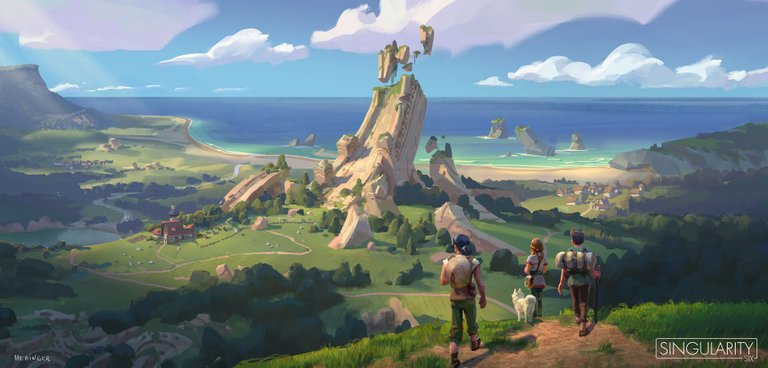
~ Intro ~
- The mycelium
- What is permaculture?
- The three tenets of permaculture
- Education
- Commonweal economy
- Our teachers and ancestors
- Masanobu Fukuoka
- Dao or Tao? The teaching of Wu Wei and the answer is permaculture
- Last but not least: A link to a Free Yearlong Online Permaculture Course

Where did we start our existence? Where will we go? How can we know? How can we know something? Where does our conscious come from? Are these answers important?
I don’t know. But I know that we have a big connection to all of it. Every spoken word, every thought and idea come from the process of life and observing it. What it is exactly, that is up to you.
For me, it is like a universe, like a multiverse, like a mycelium. It is everywhere. Let’s start our connection with food. We all need food to exist. And we nourish ourselves from the planet’s resources. That’s why it is important to know and understand our environment and ourselves well. To know what the limits and possibilities are. A way of living in unison.
Now let’s go on with permaculture.

It is, amongst others, an approach to land management that adopts arrangements
observed in nourishing natural ecosystems. It includes a set of design principles derived
using whole systems thinking. It uses these principles in fields such as regenerative
agriculture, rewilding, and community resilience. Permaculture originally came from
"permanent agriculture", but was later adjusted to mean "permanent culture", incorporating
social aspects as inspired by Masanobu Fukuoka's natural farming. The term was coined
by Bill Mollison and David Holmgren in 1978, who formulated the concept in opposition to
Western industrialised methods and in congruence with Indigenous or traditional knowledge.
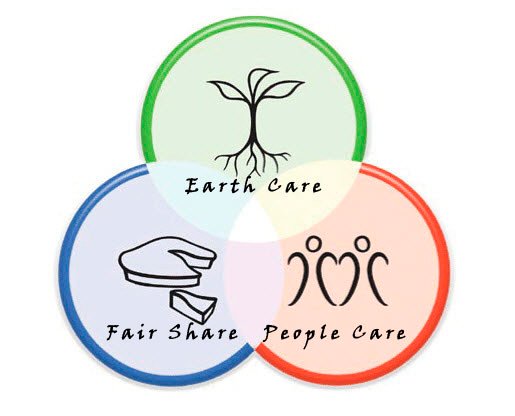
I learned three tenets from and of permaculture:
Care for the earth - Provision for all life systems to continue and multiply. This is the first principle, because without a healthy earth, humans cannot flourish.
Care for the people - Provision for people to access those resources necessary for their existence.
Fair share - By governing our own needs, we can set resources aside to further the above principles. This includes returning waste back into the system to recycle into usefulness.
The third ethic is referred to as Fair Share, which reflects that each of us should take no more than what we need before we reinvest the surplus.
That's a call to govern one's consumption. In other words: Permaculture philosophy is education, which would be good to have it mandatory and free for all people. A natural education.
As well as the education of our emotions, sexuality, social & responsible behaviour, morals and ethics are important to develop and understand ourselves and each other. Short; life equal philosophy.
But I'll immerse into these last few ones another time.

What is education? Well, it's the process of learning, or the acquisition of knowledge, skills, values, morals, beliefs, habits and personal development. Education originated as transmission of cultural heritage from generation to the next. Today's educational goals increasingly encompass new ideas such as liberation of learners, critical thinking about presented information, skills needed for the modern society, empathy and complex vocational skills.
What would the world be like if all people are provided with necessary wisdom, knowledge and tools to do permaculture?
A good government would provide the people with all of it to be self-sufficient and sustainable. Or not? What could you call it?
Commonweal economy? Let's have a detour.
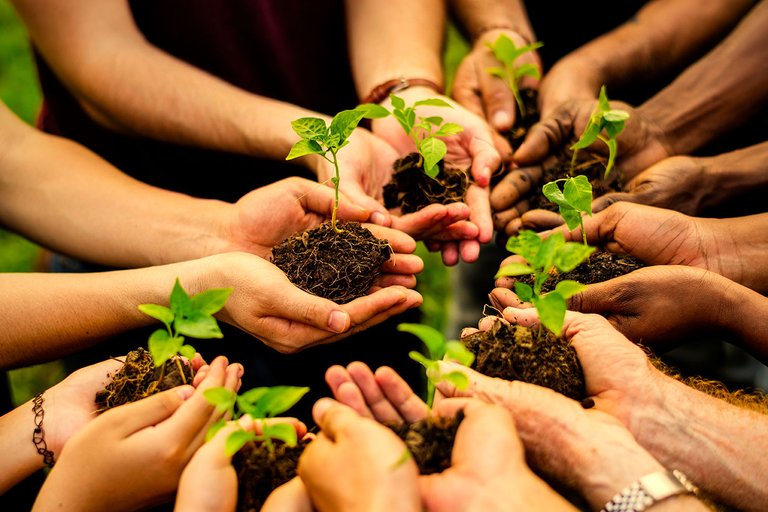
Our current economic system is upside down. Money has become an end in itself instead of being a means to what really matters: a good life for everybody.
– Christian Felber, author of the book "Economy for the Commonweal" and co-founder of the Economy for the Commonweal movement.
What is commonweal economy?
Economy for the commonweal refers to an economic system that is built on values that promote the common good, common referring to every one of us. It is a lever for change on an economic, political and social level.
The commonweal economy is:
- On an economic level, a viable, concretely realisable alternative for companies of different sizes and legal forms. The purpose of economic activity and the evaluation of corporate success are defined on the basis of values oriented towards the common good.
- A motor for legal change at the political level. The aim of the commitment is a good life for all living beings and the planet, supported by an economic system oriented towards the common good. Human dignity, solidarity, ecological sustainability, social justice and democratic participation are the central values.
- On a societal level, an initiative to raise awareness of system change, which is based on the joint, appreciative actions of as many people as possible. The movement gives hope and courage and seeks networking with other initiatives.
It sees itself as an open-ended, participatory, locally growing process with global appeal.
Foundations of the commonweal economy are the Universal Declaration of Human Rights, basic democratic and constitutional values, relationship values based on the findings of social psychology, the ethics of respect for nature and protection of the earth (Earth Charter) as well as recognised scientific facts such as the concept of planetary boundaries.
There are many communities around the world which operate and work in the sense of commonweal economy. Some of them unknown. Some of them don’t know that they act already as a role model.
I know one organisation in middle Europe which is called GWÖ (Gemeinwohl-Ökonomie).
Unfortunately, the website is only in German, Dutch or French. But if you understand one of these languages, check out their website:
ecogood.org
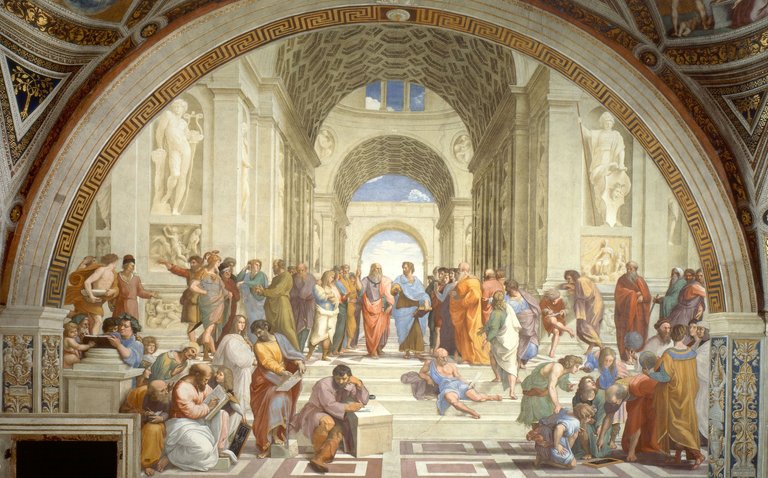
There are many great teachers we can educate ourselves from. Our ancestors. Sometimes even our neighbour seems to be one of these philosophers.
I mentioned already some names. But here are a few more of the wise teachers we all can learn from.
Socrates, known for his method "maieutics". Plato, the master of metaphysics and what's behind the filters of our senses and emotions. The antithesis of Plato is Aristotle, master of logic and
rationality. Our medicus Hippocrates, known for »Let food be thy medicine, and let
medicine be thy food.«. Epicurus, master of forming our foundation of happiness in ourselves.
From western to eastern philosophers, Alan Watts brought us a good connection. Laozi, the Dao legend. Zen Buddhist Daisetsu Teitaro Suzuki who puzzles us in questioning our existence and non-existence. Living teachers like Sadhguru Jaggi Vasudev and Richard David Precht, masters of dialogue. So on and so on. The list with great teachers is long. Let me know which one is your favourite.
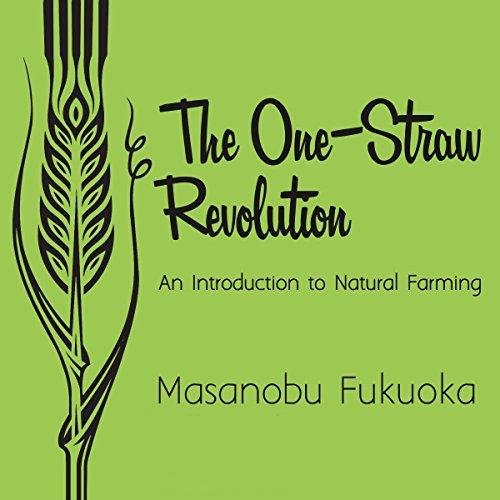
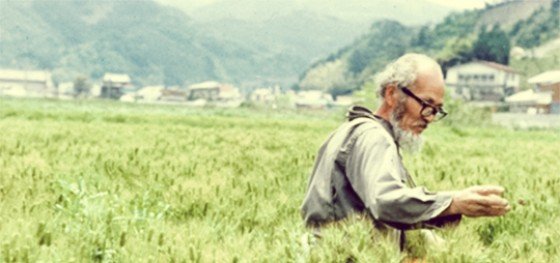
A closer look at this man tells us that he was born February 2, 1913 - August 16, 2008. He was a Japanese microbiologist, became a farmer and philosopher. As I mentioned before, his books are basic works in permaculture and celebrated for natural farming and re-vegetation of desert lands. He was a proponent of no-till, herbicide and pesticide free cultivation methods from which he created a particular method of agriculture, commonly referred to as "natural farming" or how he describes it, "do-nothing farming" based on the Taoist Wu Wei principle.
Wu Wei?
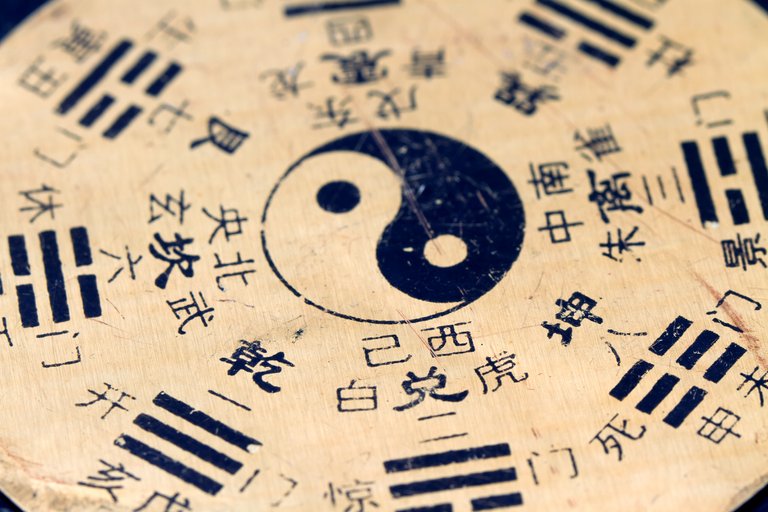
The term Wu Wei, or Wuwei, is from Daoism philosophy and was first mentioned in
Daodejing.
It is defined as non-action in the sense of abstaining from action directed against nature.
Because of pronunciation and translation we often see Dao or Tao, Tao Te Ching or Daodejing, Lao Tzu and Laozi. Important is that we all know about it. Not only because of the symbol yin and yang, black and white, good and bad. It's in all of us. It's the balance of everything and, paradoxically, the balance of nothing.
Why do I mention it? Because it is a good way of acting in nature. It is good to think about things. We don’t know if our common behaviour is the right one. So, why not slowing down, do less in our subsistence economy and do more in what is really important which is all about nature. Nature gives us food. We need food. I don’t want to say that our technology isn’t good. I’m very curious how we develop our conscious in sense of technology and create an artificial conscience. Or artificial intelligence. But first, a good thought need good food. And good food comes from good nature. Good nature is healthy nature. Healthy nature equals healthy human.
Otherwise, we will end up with the answer of the Computer Deep Thought. And that will get us nowhere.
Thank You


Hey, @growandbow. Great post. But you need to add the source to your image. Like an actual link that leads to the source and not a reference. Just a suggestion from a fellow Listnerd user :)
Thank you! I'll to it for my future posts. Or any way to add it afterwards?
Not only the source of images but the entire article @amirtheawesome1 and @growandbow.
Alright! Thank you.
You can edit your post and add source/s
Done! Thanks!!
The mycelium was a major discovery for me, so it is very comforting to see each day more and more of us are talking about it, mentioning it, and teaching others about it. Thanks.
- EvM
We are funguys 😉
Very interesting. I don't know as though I have ever heard of permaculture before, but I have read some stuff on Urban farming and I think it is really interesting. I feel like that could fall into this category when done correctly. Good stuff! I found this via listnerds!
Happy to encourage fellows. Every form of planting, cropping, composting, urban-dynamic-whatever-farming is correct. It always feels good, planting something you can nourish from and your next generations. Like a tree which can age decades.
Thanks @bozz alias LN bozzy ;)
I had not heard of permaculture before. I found it fascinating. Thanks for sharing on ListNerds.
Congratulations @growandbow! You have completed the following achievement on the Hive blockchain and have been rewarded with new badge(s):
Your next target is to reach 100 comments.
You can view your badges on your board and compare yourself to others in the Ranking
If you no longer want to receive notifications, reply to this comment with the word
STOPCheck out the last post from @hivebuzz:
Support the HiveBuzz project. Vote for our proposal!
Great post! I didn't know anything about permaculture before but Now I know thanks to you .
Came from listnerds (user mangojuice)
Aloha @mango-juice! I'm happy to share and spread the knowledge of permaculture.
I found your latest post on Listnerds. Thank you for this wonderful support to a new member.
You got my upvote.
😊🙏🏽
plant your life, water it and watch how it germinates into something beautiful
Exactly! Well said.
welldone..will be checking up on yur post ...i just followed yu up
Same! 🙂
ilook forward to seeing you more here on listnerds
Yes, permaculture is something amazing!!! Thank you so much for sharing this post with us. I feel blessed to have you on Hive, we can learn a lot from you! I'm so glad you're finding your feet a bit here too. I know it's a jungle sometimes. Much love to you guys!!!
Thank you so much! The jungle is always a wonderful challenge. And way more fun and easier when you have a companion like you 🙏
Much love to you, too!!!
So great! Thanks for sharing all this informations @growandbow =)
Really usefull!
Always happy when information find users. Welcome to Hive! It looks like you joined recently. We came via ListNerds. Thanks to our friend @misslasvegas.
Let us know if we can help you with anything.
Thanks a lot @growandbow =)